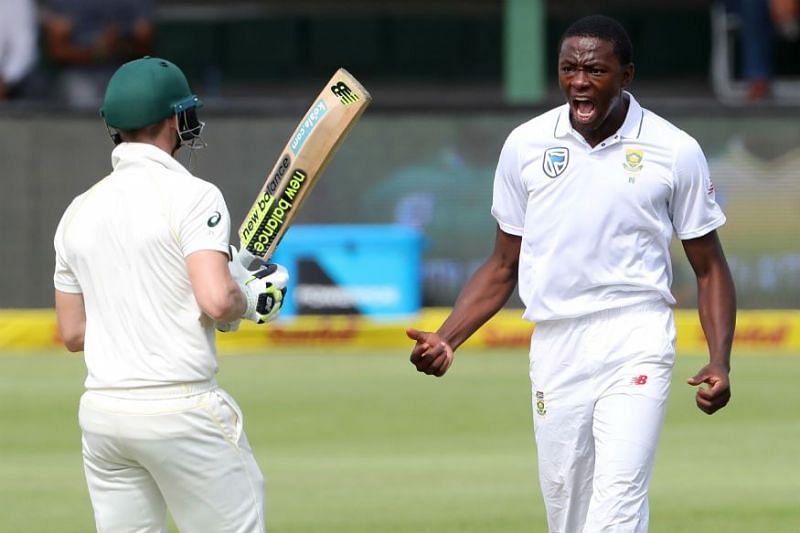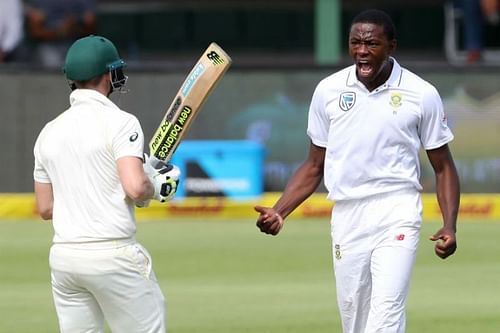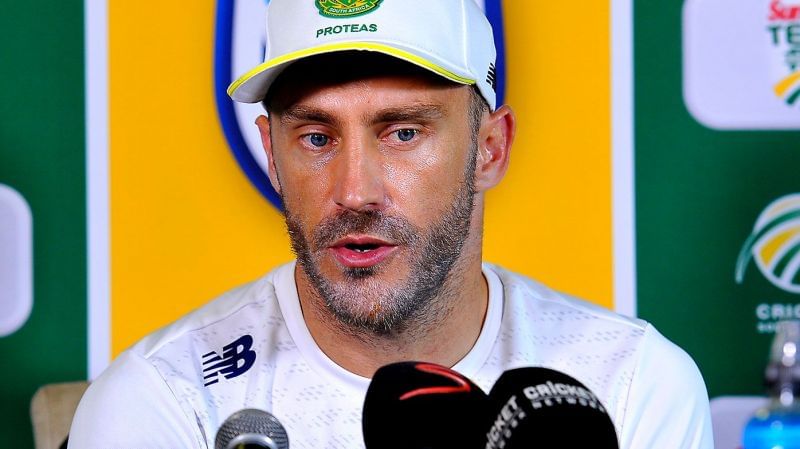
3 reasons why banning Kagiso Rababa is an inappropriate decision

South Africa's Kagiso Rabada, the man who took 11 wickets in the second game to demolish Australia twice, was banned for the rest of the Test series after being found guilty of deliberately making contact with the tourists' captain Steve Smith.
Fast bowler Rabada brushed shoulders with Smith after celebrating his dismissal during South Africa's six-wicket victory in the second Test. It took the 22-year-old to eight demerit points in a 24-month period, resulting in a two-Test ban. The International Cricket Council (ICC) rejected Rabada's claim that the contact with Smith was accidental.
The four-match series is level at 1-1, with the third Test starting on 22 March in Cape Town. Rabada was fined 50% of his match fee for the incident with Smith.
Here are the reasons why the ban was unfair on the bowler.
#1 Double standards on ICC's behalf

The ICC's demerit system was put in place in September 2016 in an effort to improve player behavior. For the record, both the incidents involving Rabada and David Warner have been labeled level two charges, with both players coughing up 'hefty fines' and earning three demerit points each. The problem is that the Aussie vice-captain is still playing and has escaped from a ban.
"For me, if you look at those incidents, one is brushing of the shirt, (while) the other is a lot more aggressive. My question was: why are both these incidents labeled the same? For me, they are not," South Africa skipper Faf du Plessis lamented.
"The contact [between Rabada and Smith] was very minimal. It was a shirt flick of two players and you would get one or two demerit points as a slap on the wrist because it wasn't full body contact. But that's where I'm sitting as a player, not as an official."
Rabada's ban also sends a wrong signal to the bowlers, especially to those who aspire to take wickets to floor the opponents and not just check the flow of runs as is the trend in the limited-over formats.
Cricket pundits in South Africa have alleged that players like Warner or Indian captain Virat Kohli hardly come under the scanner for their on-field aggression. This angle to the story can’t really be brushed aside. India, Australia and England are the biggest revenue earners for the ICC and it is not easy for the latter to punish players from these teams as easily as it can do to the rest.
Australians have held the title of world champions in sledging as a badge of honor and when Warner vows to maintain an aggressive stance in the field, then they shouldn't whine when Rabada is all pumped up and celebrating after taking a scalp.
Match Referee Jeff Crowe had made it clear he didn't want to suspend Australia's vice-captain and that shaped his final punishment. The match referee had explained that he didn't ban Warner as there are bigger things at play, so he didn't make it a level three offense because it is a series between two big teams.
If that's the case then the same purview should have been applied for Rabada as well.